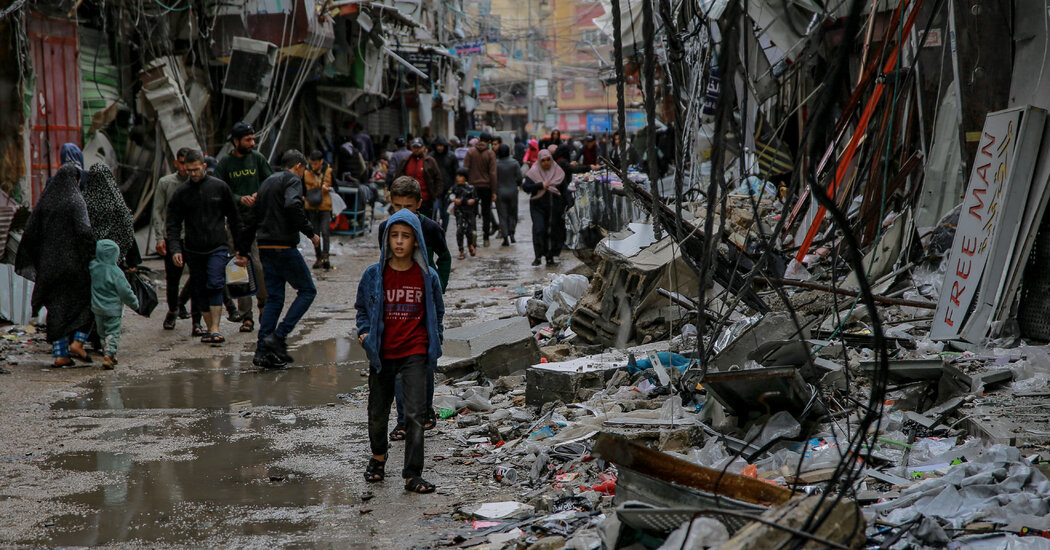The deal came after an Israeli offer to continue the cease-fire by one day for every additional 10 hostages released, who would be exchanged for 30 Palestinians in Israeli prisons.
The Israeli hostages released on Monday were three women and eight children, all of them kidnapped from Kibbutz Nir Oz during the Hamas-led assault on Israel on Oct. 7, when more than 200 people were seized and taken to Gaza.
They included Sharon Alony Cunio, 34, and her twin 3-year-old daughters, Emma and Yuli Cunio, three of the six members of their family who were taken hostage. David Cunio, the twins’ father and Ms. Cunio’s husband, is believed to still be in Gaza. Her sister and niece were released on Friday.
The French government said three of those released on Monday were dual Israeli-French citizens. A number of those kidnapped have dual nationalities, including about 10 Israeli-Americans, of whom only one, a 4-year-old girl, has been released.
Hamas said it had received a list of three women and 30 minors that Israel would release in return on Monday.
The exchanges so far have focused on Israeli and Palestinian women and minors. Dozens of Israeli soldiers as well as civilian Israeli men in their 70s and 80s are still being held captive in Gaza. In several cases, children have been released without their fathers, and wives without their husbands.
Family separations have been a stumbling block in the hostage negotiations.
Israeli officials have expressed concerns to Qatari mediators that some children were being released without mothers who were also being held captive, running counter to the agreement, according to an official briefed on the talks. The official said Hamas has said that in those cases, the mothers are being held by different groups, and it would take time to get them.
Late Monday, Israel’s Army Radio, citing the prime minister’s office, reported that the government had received a list of hostages held by Hamas who are expected to be released on Tuesday.
The swap of hostages and prisoners is being negotiated by the government of Qatar, where many of Hamas’s political leaders live, and which has long acted as an intermediary for nations that refuse to deal directly with Hamas.


